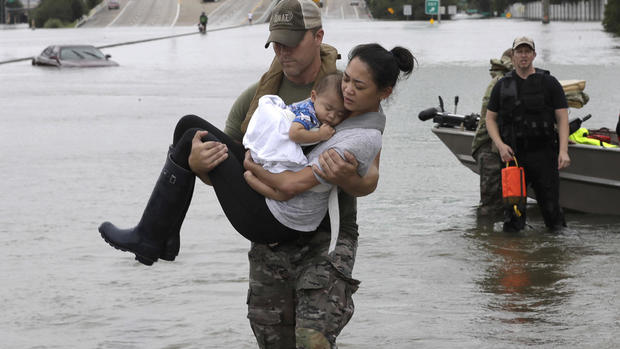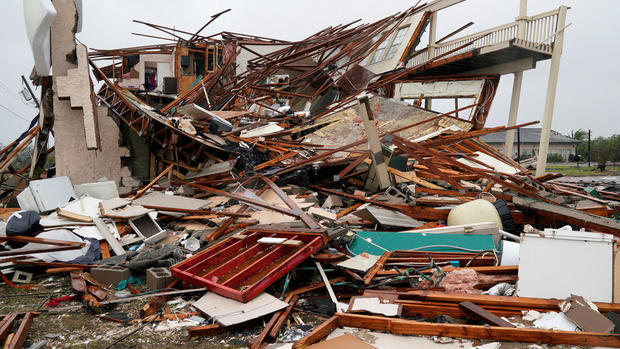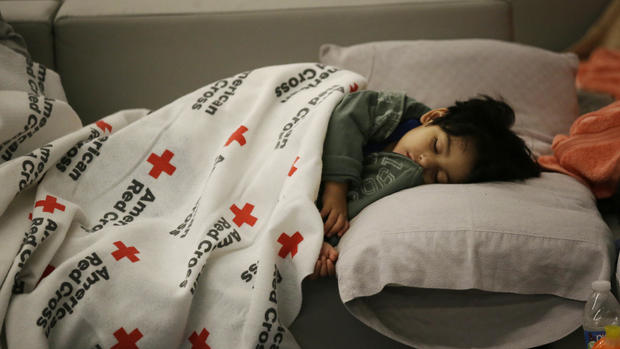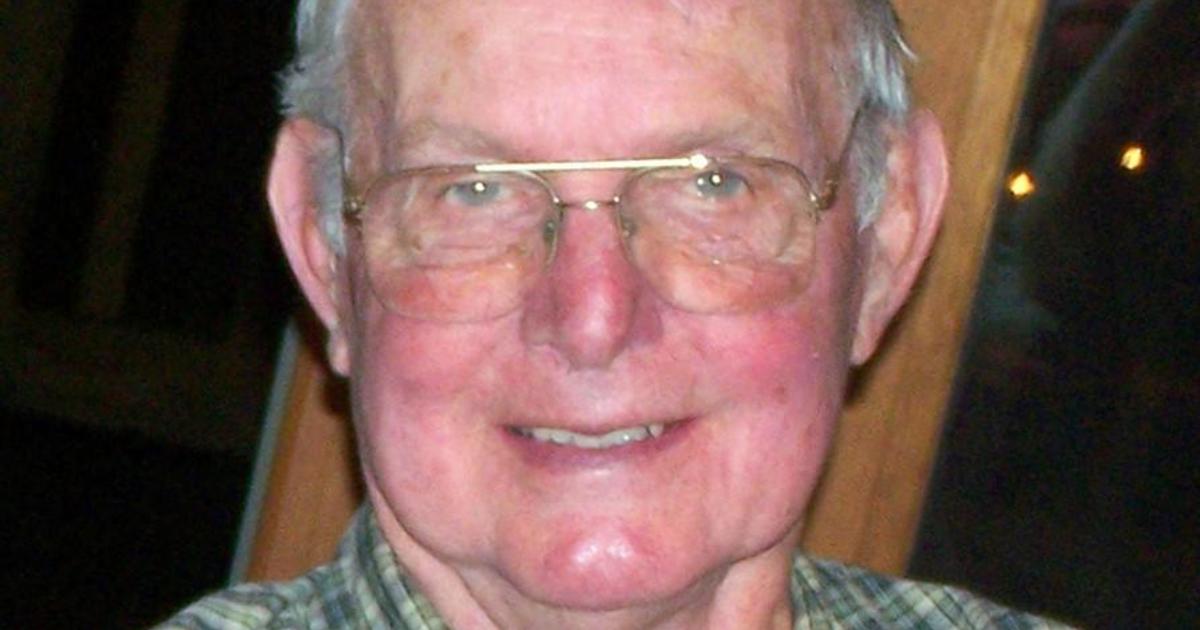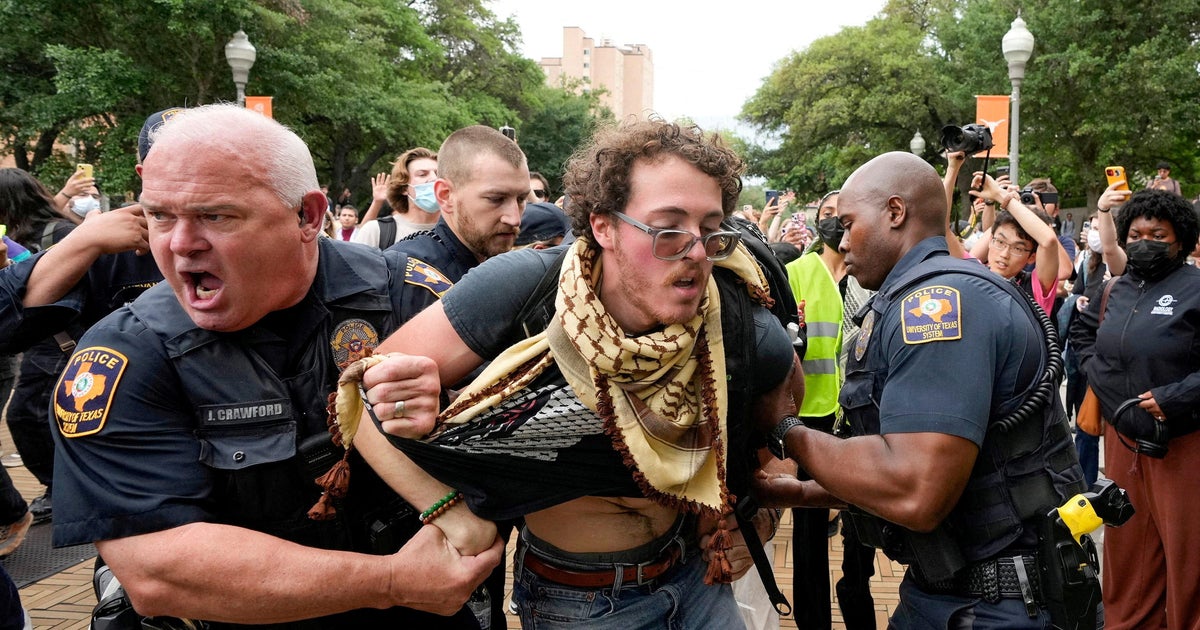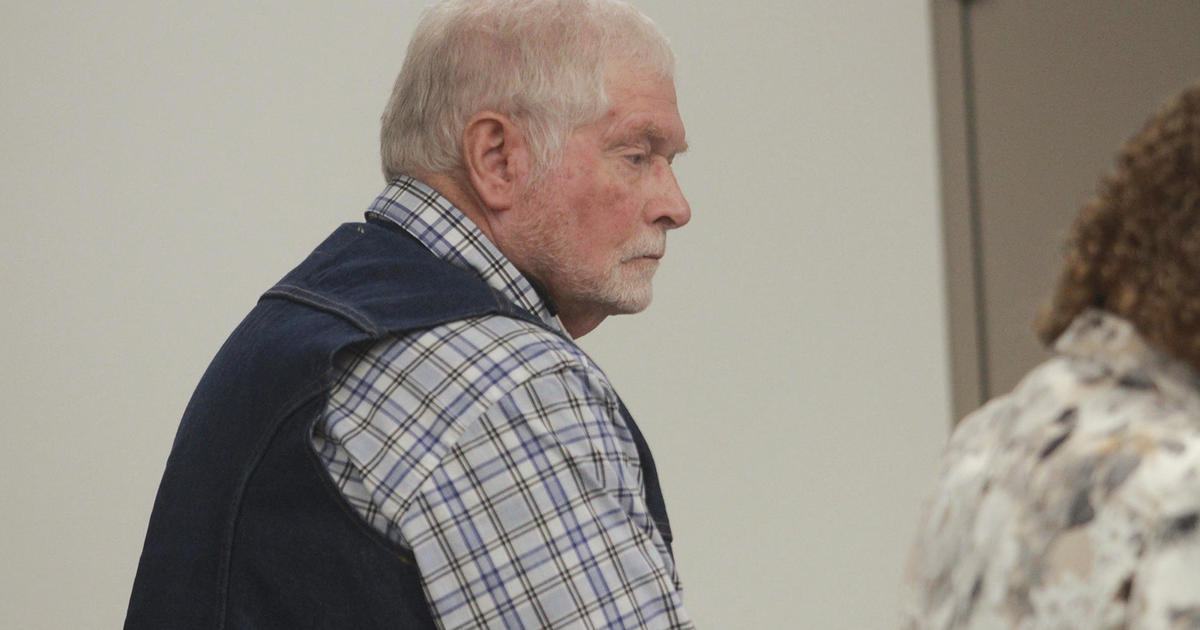The wrath of Hurricane Harvey
Nine days after Hurricane Harvey came ashore, we're still struggling to fully comprehend its aftermath. At least 45 people are confirmed dead as of this morning, while the economic toll is estimated in the tens of billions. Mark Strassmann has been there through it all:
Harvey hit Texas with Old Testament wrath -- a deluge along the state's Gulf Coast that dumped more than four feet of rain in four days.
Watery misery kept rising in Harris County, which includes Houston. By mid-week, 30 percent of the county -- 450 square miles -- was under water. One man, who dove out of his truck as it became swamped, told Strassmann, "I thought it was just a couple of feet, you know? I didn't think it was that deep until it was too late. I couldn't do nothing about it."
Houston was in over its head. Rescues became a daily, even hourly drama. "The current was getting high, we had to bust a window to get out," said resident Gillis Layho.
Houston Mayor Sylvester Turner had decided against evacuating residents in America's fourth largest city. "You cannot evacuate 6.5 million people within two days," he said. "You can not; that would be chaotic. We would be putting people more in harm's way."
In one of America's most flood-prone major cities, relentless rains swamped neighborhoods and highways. A dangerous water world trapped tens of thousands of residents. Life-and-death 911 calls scaled beyond the capacity of first responders.
County Judge Ed Emmett asked for volunteers to come forward with boats and high-water vehicles. A civilian navy responded, and neighbor rescued neighbor. Harvey became an all-hands-on-deck moment.
One volunteer said, "If this was my family, I hope somebody would come for them."
"We knew we had a lot of people with boats who wanted to help," said Houston Police Chief Art Acevedo. "They had the courage, the integrity, and the intestinal fortitude. As a result of them wanting to get in the water and get in the boats, I know for a fact that a lot of people lived because of them.
Harvey's new flood became evacuees. Houston's convention center became its major shelter. Nearly 10,000 people poured in, doubling its original capacity.
Two Mattress Mack furniture stores became temporary housing for people with no place else to go. "We thank Mr. Mack for opening up his doors to us," one woman said. "Because We didn't know where our next meal was going to come from, or clothes on our back."
Jim McIngvale, the owner of "Mattress Mack," said, "We're going to keep these folks here as long as they need to be here. They may be here three days, they may need to be here seven. We're here to help. That's what we do. That's who we are."
The lifeline came too late for some. Water swept away a van killing six members of the Saldivar family, an elderly couple and four of their great-grandchildren.
Three-year-old Jordyn Grace survived in floodwaters clinging to her dead mother's body. The little girl told rescuers, "Mama was saying her prayers."
- 6 family members confirmed dead after van swallowed by floodwaters ("CBS Evening News," 08/30/17)
- Harvey horror: Shivering tot found clinging to drowned mom (CBS News, 08/30/17)
- Nursing home resident rescued after viral photo of waist-high flooding describes experience ("CBS This Morning," 08/31/17)
Mayor Sylvester Turner said, "If you lost one life, that's one life you didn't want to lose. But considering the enormity of the storm and the amount of rainfall that occurred, the number of lives that have been lost is much lower than what it could have been."
In Crosby, Texas, east of Houston, explosions and a massive fire broke out at a chemical plant. Forty inches of rain flooded out its power and refrigeration capabilities. Volatile organic peroxides could burn for days.
- Fire breaks out at Harvey-hit chemical plant after small explosions (CBS News, 08/31/17)
- Flames erupt at Arkema chemical plant flooded by Harvey in Crosby, Texas ("CBS Evening News," 09/01/17)
- EPA not on scene of toxic waste sites flooded by Harvey (CBS News, 09/02/17)
- Shell, Exxon say some pollution released as Harvey hit Texas (CBS Moneywatch, 08/30/17)
As floodwaters receded in Houston, Harvey returned with a vengeance along the Texas Gulf Coast. Rains lashed cities like Port Arthur and Beaumont.
The initial estimate of property damages was $30 billion, less than forty percent of it covered by insurance. Many Houston neighborhoods could remain uninhabitable for weeks.
- Problems plague Texas after Harvey as evacuations continue (CBS News, 09/02/17)
- Evacuees in east Texas desperate to go anywhere else as flooding crisis continues ("CBS This Morning," 09/01/17)
"One of the signs that people will look for and what's important is how quickly that debris is being removed," Mayor Turner said. "What we are needing from FEMA is an advance payment on debris removal."
Strassmann asked, "Give me a sense of the kind of check you're looking for as a down payment."
"Debris removal, just for the city of Houston alone, could be anywhere between $250-300 million."
Total damage and cleanup costs could reach $75 billion, making Harvey the second most-costly natural disaster in U.S. history, behind only Katrina. Its legacy of ruin will challenge Houston for the next decade.
"We have always faced challenges," Houston Mayor Turner said. "That's who we are. But this is a city of hope and opportunity. And this is a city that will come back stronger than it has ever been. Of that I have no doubts."
